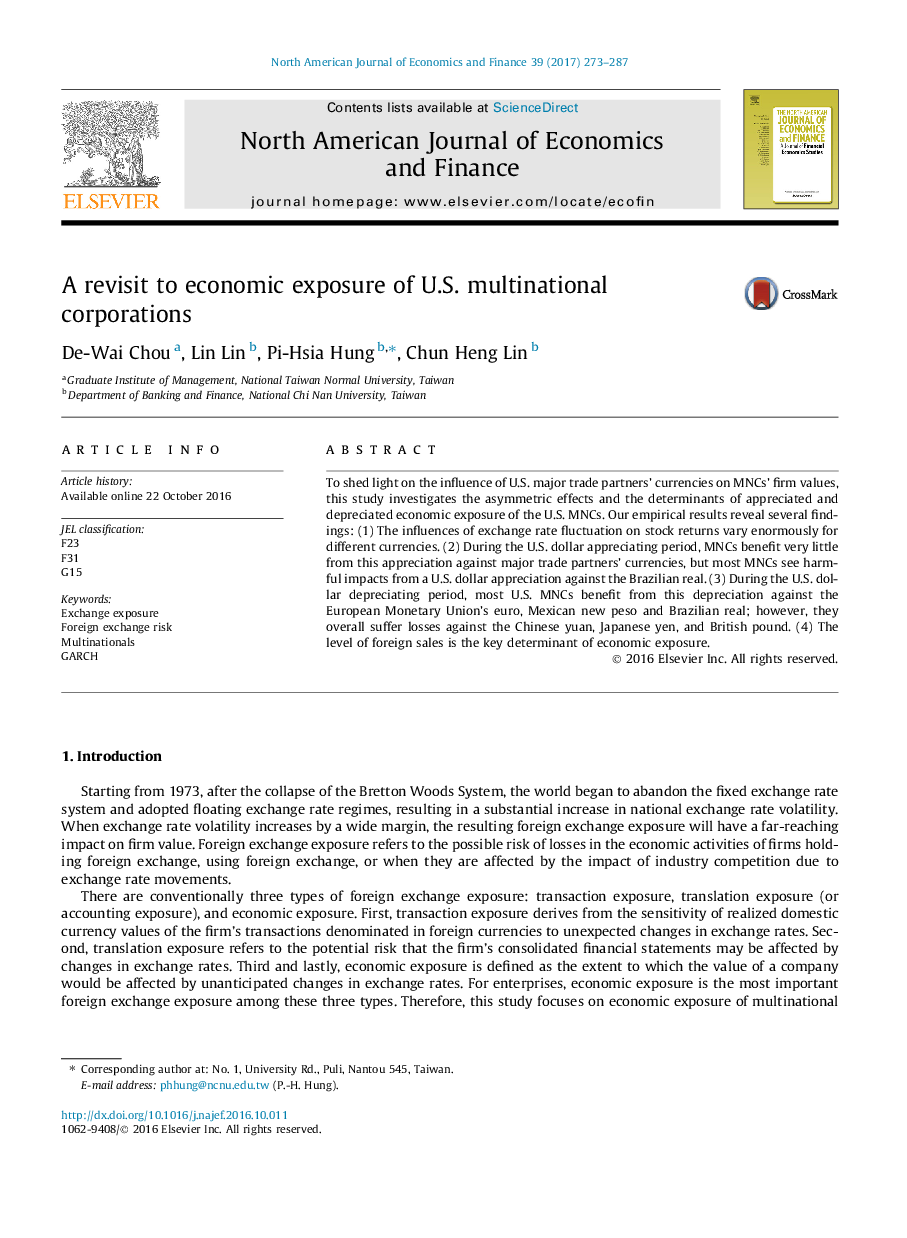| Article ID | Journal | Published Year | Pages | File Type |
|---|---|---|---|---|
| 5102267 | The North American Journal of Economics and Finance | 2017 | 15 Pages |
Abstract
To shed light on the influence of U.S. major trade partners' currencies on MNCs' firm values, this study investigates the asymmetric effects and the determinants of appreciated and depreciated economic exposure of the U.S. MNCs. Our empirical results reveal several findings: (1) The influences of exchange rate fluctuation on stock returns vary enormously for different currencies. (2) During the U.S. dollar appreciating period, MNCs benefit very little from this appreciation against major trade partners' currencies, but most MNCs see harmful impacts from a U.S. dollar appreciation against the Brazilian real. (3) During the U.S. dollar depreciating period, most U.S. MNCs benefit from this depreciation against the European Monetary Union's euro, Mexican new peso and Brazilian real; however, they overall suffer losses against the Chinese yuan, Japanese yen, and British pound. (4) The level of foreign sales is the key determinant of economic exposure.
Related Topics
Social Sciences and Humanities
Economics, Econometrics and Finance
Economics and Econometrics
Authors
De-Wai Chou, Lin Lin, Pi-Hsia Hung, Chun Heng Lin,
